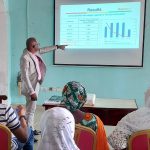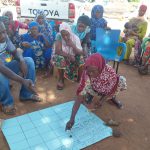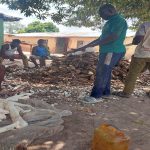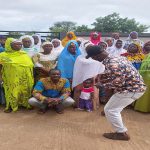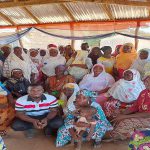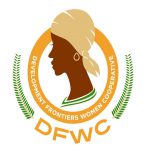
Development Frontiers Women Cooperative (DFWC) is a multipurpose association of women farmers, shea collectors and butter and gari processors founded in 2010 in the East Gonja district in the Savannah region of Ghana. It is comprised of over three thousand (3000) women in groups in thirty-five (35) communities. Although the cooperatives’ initial groups were solely drawn from East Gonja district, it has currently expanded to include Zabzugu, Mion and Karaga districts in the northern region.
DFWC emanated as women group beneficiaries of a number of interventions carried out in the past by Development Frontiers, a local NGO based in Salaga in the East Gonja district. Following the implementation of different livelihood activities and advocacy issues in the East Gonja district and four (4) others districts (Zabzugu District, Mion District, North East Gonja and Karaga Districts), the beneficiary groups decided to form an umbrella cooperative with the objective of fostering collective action to improve market access and bargaining power as well as influence local policies and cultural practices through advocacy.
Our Vision: The vision of DFWC is a sustainable and equitable society that empowers rural women to achieve economic and social justice and to actively participate in community development.
Our Mission: To champion the economic and social transformation of rural women through collective action.
Core Values
Cooperatives are based on the values of self help, self responsibility, democracy, equality, equity and solidarity. In line with this, DFWC members strongly uphold the following values;
- Co-creation
- Team work
- Equality and inclusiveness
- Empowerment
- Transparency
- Honesty
- Social responsibility
- Self-help and caring for others
Projects

Our Impact in East Gonja: Transforming Livelihoods and Empowering Communities
At DFWC, we are deeply committed to inclusive development and community empowerment. Over the years, we have implemented a wide range of impactful projects in the East Gonja Municipal and Mion district areas, focused on transforming local economies, especially for women and marginalized groups.
Empowering Women Through Shea Value Chain Development
We have carried out several strategic livelihood empowerment interventions centered around Shea-related activities. These initiatives have included:
- Training in Premium Quality Shea Butter Processing
- Co-operative Management & Quality Control Training
- Business Management Training
Building Capacity for Growth
To strengthen the agricultural and commercial infrastructure of the district, DFWC has also invested in:
- Warehouse Management and Aggregation Capacity Building
- Advocacy for a Public Warehouse Construction in East Gonja
Introducing the Inclusive Access to Gari Market Initiative (IAGMI)
Our latest intervention under the Action for Voice and Inclusive Development (AVID) program is the Inclusive Access to Gari Market Initiative (IAGMI). This project aims to unlock economic opportunities for rural farmers and women-led cooperatives by improving access to the lucrative gari market. IAGMI is designed to ensure fair market participation, reduce barriers, and promote equitable income distribution within the cassava value chain.
DFWC remains dedicated to creating sustainable change, enhancing economic inclusion, and amplifying community voices in East Gonja and beyond.
Communities
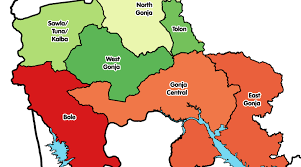
We are implementing the IAGMI project under the Star Ghana Foundation AVID Project in five communities in East Gonja district;
- Sisipe
- Techipe
- Kakoshie
- Kafaba
- Lamsa
Our Donors
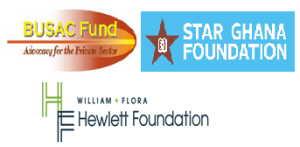
Business Sector Advocacy Challenge (BUSAC) Fund and Star Ghana Foundation together with support from Flora and Hewlett Foundation.
News
- STUDY REPORT ON INCLUSIVE ACCESS TO GARI MARKET INITIATIVE IN THE EAST GONJA DISTRICTGari enterprise in Ghana is considered a catalyst for economic transformation and a route out of poverty in rural communities. Small and medium enterprises are potent cartridges for fighting rural poverty and leveraging on processes leading to the achievement of sustainable goals one and two (end poverty in all its forms everywhere, and end hunger and improve nutrition, respectively).




